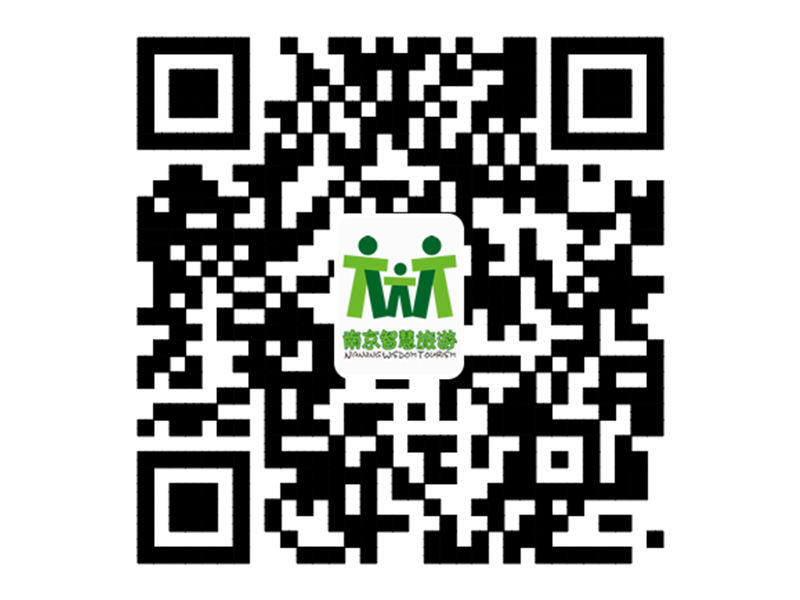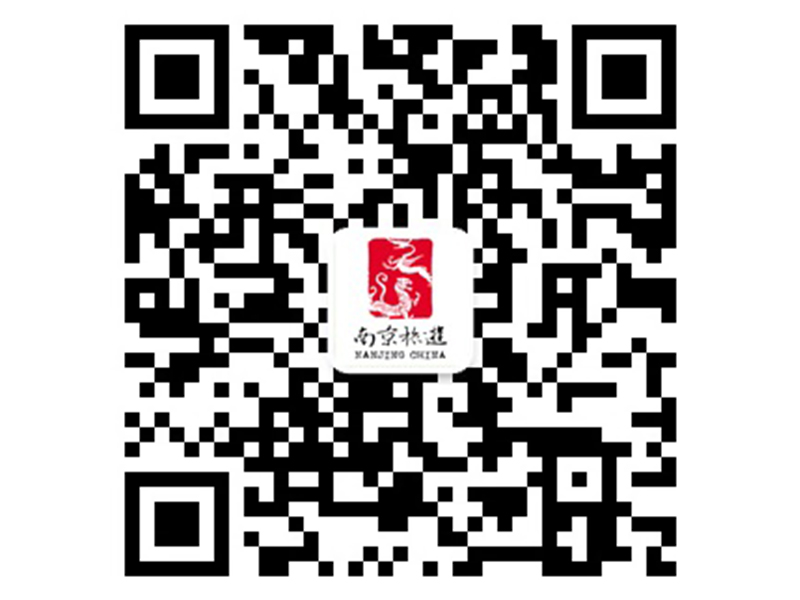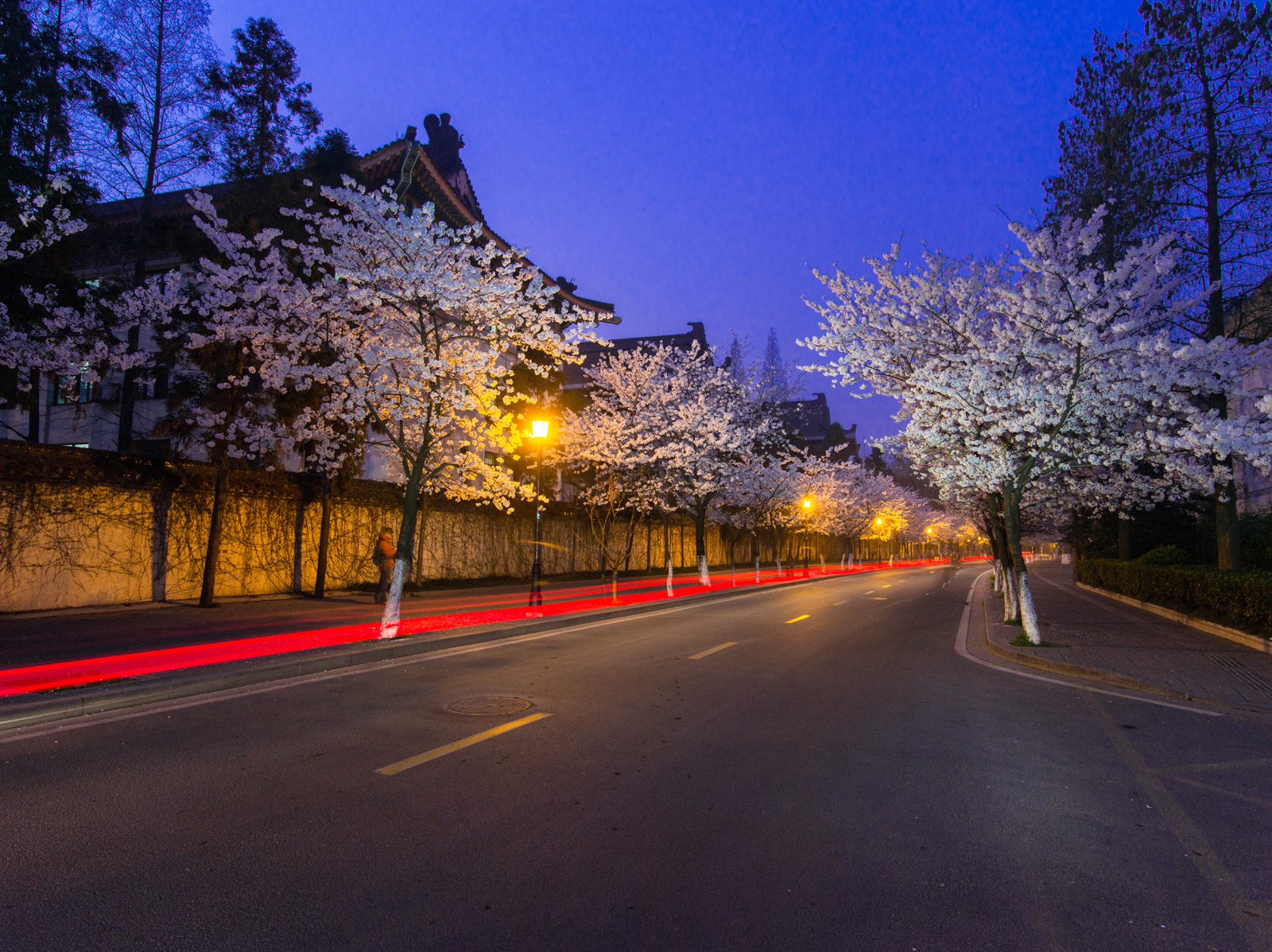FAQ for Travelling in Nanjing China
What is Chinese Currency - Renminbi (RMB)?
Chinese yuan, also known as Renminbi, is used throughout in mainland China, while in Hong Kong and Macau, Hong Kong dollar and pataca are respectively used. The basic unit of Renminbi is Yuan and the sign of Yuan is ¥.
The metric conversion about Chinese Yuan is:1Yuan=10jiao 1jiao=10fen
In some parts of China, yuan is called kuai and jiao is referred as mao. Chinese money is issued by the People's Bank of China in denominations of one, two, five, ten, twenty, fifty, and one hundred yuan. The jiao and fen coins are both issued in ones, twos, and fives.
In China, currency exchange could be available in large banks, hotels and airports. For currency conversion.
How can I use travelers checks and credit cards Nanjing?
Traveler's checks are easily cashed at the Bank of China in Beijing. Major credit cards such as MasterCard, Visa, JCB, Diners, Club and American Express may be used to purchase goods in large department stores. They can often also be used to pay bills at many hotels, at major shopping centers and for meals in some restaurants.
How to make phone calls in China?
When making international calls with landline or cell phone by yourself, first you must dial "00" ( international prefix ), then dial the country code, then the area code and local number.
When making domestic long distance calls with landline or cell phone ( to landline ) in China, you should first dial the area code starting with 0, then the local number.
When making domestic long distance calls with landline or cell phone ( to cell phone ) in China, you first should dial 0, then the cell phone number.
When calling a Chinese landline out China, you must first dial the international prefix number, for example in US you dial 011, then dial 86 the country code for China, then the area code and local number.
When calling a Chinese mobile number, you first need dial the international prefix number, then dial 86, then the mobile number.
Useful Telephone Numbers:
- Police:86-25-110
- Service hotline of Nanjing Government: 86-25-12345
- Travel consultation: 86-25-52269008
- Travel complaints: 86-25-52260123
- Fire Alarm:86-25-119 or 86-25-110
- Traffic Accident:86-25-122 or 86-25-110
- First Aid:86-25-120 or 86-25-110
- Local Phone Number Inquiry:86-25-114
- Post Service:86-25-11185
- Nanjing Telecom:86-25-10000
Can I drink tap water in China?
Tap water is not drinkable in China. Unlike in most western countries, the tap water in China is undrinkable before it is boiled.
How to ease the effect of time difference on the human body?
Travelling in another country by plane will confuse the biological clock and make one feel faint, due to time difference. So, how can we ease the effect on the human body? There are some suggestions below:
Drink a lot of water, rather than alcohol, to prevent dehydration of the body, because dehydration will exacerbate the effects of time difference.
Wear loose clothes to facilitate the flow of blood in the body.
Walk frequently in the cabin to strech the muscles.
What agencies can deal with foreigners' travel complaints?
If you want to know some information about shopping, traffic, food, etc., or you get into troubles, you can call the 24-hour service hotline of Nanjing Government at:86-25-12345. And if you want to know some information about tourist attractions, travel agencies or accommodation, you can also consult Nanjing Tourism Commission or make complaints.
Travel consultation: 86-25-52269008
Travel complaints: 86-25-52260123
Online:www.nju.gov.cn
Address: 20 floor, New City Mansion, No. 259 Jiangdong Central Road, Jianye District, Nanjing
(opposite to the East Gate of Nanjing Olympic Sports Center)
What should I pay particular attention to in applying for a Chinese visa?
Pay attention to the following when making visa applications:
- Make arrangements in advance in case the visa is initially turned down or time is limited.
- The applicant should truthfully and clearly fill out the application form and sign it him or her self. (The parents or guardian of a minor may sign on behalf of the minor, stating ?their relationship).
- The application should be true and complete with required associated documents. Applications will be rejected if associated documents are forged or incomplete.
- Answer officers’ questions truthfully. In accordance with relevant Chinese regulations and international practice, a consular officer has the right to require all relevant documentation of the applicant and the right to refuse to grant a visa without giving any reasons for the decision.
- The visa officer shall decide the visa type, times, validity period and length of stay in accordance with relevant regulations, after consideration of the applicant’s request.
- An applicant shall check all details when obtaining a visa, and shall promptly raise any questions.
The applicant is liable for any consequences in the following circumstances:
- Failure to fill out the application form truthfully or completely which leads to the rejection of the visa application.
- Failure of the passport or photograph to meet requirements, or failure to provide relevant documentation or information requested by the visa officer, which causes the rejection of the visa application.
- If the visa is expired, or it is not ready in time, which leads to rejection at the point of boarding for travel to China or at the point of entry to China
- The visa is invalid and cannot be used any longer, due to the applicant’s action or omission or due to the actions or omissions of a third party.
- The applicant is rejected at the point of boarding for travel to China or at the point of entry to China, for any reason related to visa dates, or the validity, length of stay, or dates of a passport.
- If the visa cannot be used at any point because of the applicant’s actions or omissions.
What materials are needed in applictions for group tourist visas?
Original invitation or fax copy from an authorized agency.
Tour schedule (Tour number should be marked).
Passport.
A list of names of those in the tour party in triplicate (Printed copy with on a standard format)
How do I get a Chinese visa?
Visas for leisure travel to China are quite easy to get, and are usually granted for a one month´s stay. You can contact the China National Tourist Offices in New York or Los Angeles. Your travel agent or visa services provider can also help you. Visas can also be obtained from Chinese embassies or consulates. In North America, you can contact the Chinese Embassies in Washington DC and Ottawa, or Consulates in San Francisco, Los Angeles, or Chicago, Houston, New York, Vancouver or Toronto.
US citizens can stay in Hong Kong without a visa for up to 30 days. For other passport holders, please inquire at your nearest PRC embassy or consulate.
A tourist visa requires a completed application form, a passport-size photo and a fee which will vary depending on visa type. It takes about seven business days for an application to be processed. For Tibet, the Chinese Embassy must get approval from the Tibet Tourism Administration before issuing a visa.
What type of visa do I need?
Single-entry visas to China are usually valid for 3 months from the date of issue, and will permit you to stay in China for a maximum of 30 days. This visa will allow you to travel as a tourist or conduct general business activities. Most people need only to apply for a single-entry visa.
Where do I apply for a Chinese visa?
Except where there are clear grounds for a visa exemption, a foreigner coming to China should, in principle, apply for a visa to a Chinese diplomatic or consular mission or office abroad, the Commissioner’s Office in Hong Kong and Macao, or offices in other agencies abroad authorized by the Ministry of Foreign Affairs. Click here for more information about visa agencies.
There are district divisions for Chinese diplomatic or consular missions abroad, and in principle applicants should apply for a visa to the diplomatic or consular mission closest to or allocated to their place of residence. Except for citizens of some particular named countries, who may only apply for a visa to Chinese diplomatic or consular missions in their own country, applicants may apply to the nearest Chinese diplomatic or consular mission.
Foreigners holding an ordinary visa in China can apply for an extension or change of that visa to the local public security agencies at county-level or above which are authorized by the Ministry of Public Security to make visa changes.
How can I make international calls from my hotel?
International calls and overseas calls to the Hong Kong Special Administrative Region (SAR), to the Macao SAR or Taiwan and to some International countries may be made directly from hotel rooms with IDD lines. Some hotels will add a 15 percent service charge, which is usually added to the accommodation fee. With an IC card, you can also make domestic long distance calls and international calls from public telephones or you can ask about the long distance call service in your place of accommodation.
How can I use travelers checks and credit cards Nanjing?
Traveler's checks are easily cashed at the Bank of China in Beijing. Major credit cards such as MasterCard, Visa, JCB, Diners, Club and American Express may be used to purchase goods in large department stores. They can often also be used to pay bills at many hotels, at major shopping centers and for meals in some restaurants.
How to prevent luggage being lost in transit?
In order to prevent luggage being lost in transit: a. a passenger should lock his luggage; b. make sure the luggage tag is secure, and the name, address and destination should be clearly filled out (English preferred); c. the registered items on the luggage tag should be correct, especially the destination and flight number; d. other labels and the luggage tags should be torn off.
How does a foreigner travel in China with his own vehicle?
Agencies in charge:
The tourism management agency of the province or municipality where the applicant is located.
Restrictions
- Foreigners must travel with their vehicles.
- Foreigners with their own vehicle traveling outside open areas must stay with their own vehicles.
- There must be an approved Chinese organization to receive the foreigner and their rules must be kept to.
- The vehicle must be lawfully registered in the local country or region.
Basis of the above information:
Notice on Strengthening the Administration of Foreigners Traveling with Their Own Vehicles (Ministry of Public Security, Headquarters of the General Staff, Ministry of Foreign Affairs, General Customs Administration and National Tourism Administration |LS|86|RS| Gong Fa No.27)
How do I use the postal service?
Most tourist hotels provide postal services; however, if you want to send important items such as antiques or cultural relics that are under customs control, you must consult the local branch of the International Post Office.
In addition to regular postal services, the International Post and Telecommunications Office handles remittances, money orders, telegraphic money transfers, international and domestic telephone and telegram services and local telephone services.? In the same building there is a customs office for those who need customs clearance. Additionally, packages can be collected from this office.
You can send postcards, letters, parcels and express mail anywhere in the world via China Post (with the green logo), FedEx or China Air Express. Visitors should not wrap parcels before they are taken to the post office since the contents must be examined before the parcel can be mailed. Also, some forms of publication such as books, magazines and newspapers must be examined at an authorized post office.
What should I not bring to China?
Prohibited and Restricted Imports
--The following items may not be brought into the PRC:
- Weapons, articles that appear to be or are replicas of weapons, ammunition and explosives, including fireworks.
- Counterfeit currency and fake securities.
- Printed articles or films, photos, phonograph records, movies, audio tapes, video tapes, laser optic disks, computer memory media and other articles which are considered socially disruptive or harmful to China´s politics, economy, culture or morality.
- Poisons and poisonous liquids.
- Opium, morphine, heroin, marijuana and other narcotics or hallucinogens.
- Animal and plant products that carry dangerous germs, pests and bacteria.
- Food, drugs and other articles which are harmful to the health of human beings or animals or which come from infectious disease-stricken regions or which are known to be disease-spreading.
--The following items are subject to restricted entry:
- Radio transceivers and secure communication devices.
- Cigarettes and alcohol.
- Endangered species of fauna and flora (including chemical and scientific specimens) as well as their seeds and reproductive materials.
- Amounts over RMB 6,000 in Chinese Yuan Renminbi.
Prohibited and Restricted Exports --The following items may not be taken out of China:
- Weapons, articles that appear to be or are replicas of weapons, ammunition and explosives, including fireworks.
- Counterfeit currency and fake securities.
- Printed articles or films, photos, phonograph records, movies, audio tapes, video tapes, laser optic disks, computer memory media and other articles which are considered socially disruptive or harmful to China´s politics, economy, culture and morality.
- Poisons and poisonous liquids
- Opium, morphine, heroin, marijuana and other narcotics or hallucinogens.
- Animal and plant products that carry dangerous germs, pests and bacteria.
- Food, drugs and other articles which are harmful to the health of human beings or animals or which come from infectious disease-stricken regions or which are known to be disease-spreading.
- Manuscripts, printed materials, films, photos, phonograph records, movies, audio tapes, video tapes, laser optic discs, computer memory media and other articles whose contents are related to China´ s state secrets.
- Antiques and relics of cultural significance.
- Endangered species of fauna and flora (including chemical and scientific specimens) as well as their seeds and reproductive materials.
--The following items may be subject to restricted exit:
- Precious metals, including gold, silver, and platinum.
- Chinese national currency in amounts in excess of RMB 6,000.?
- Foreign currencies and securities in foreign currencies.
- Radio transceivers and secure communication devices.
- Rare Chinese medicinal herbs and materials.
- Antiques.
What are the luggage limits?
As different airlines have varying policies, you should check with your carrier for restrictions and allowances. Usually, each trans-Pacific passenger is allowed two check-in bags totaling 106 inches over the three dimensions, and one carry-on bag not over 39 inches. There is no free luggage allowance for holders of infant tickets.
For domestic China and intra-Asia flights, you are allowed to check in one piece of luggage less than 20 kilograms (44 pounds) total weight, and retain one piece of carry on luggage, of not more than 10 lb. The fee for extra baggage or overweight baggage could be so high as to be prohibitive.
The liability of the airlines is limited for lost or damaged luggage. Passengers may apply for insurance coverage above the minimum value for checked luggage.
There is no luggage restriction on domestic trains, but travelers who are not part of an organized tour will have to carry their own bags as few porters are available to help. Travelers to China are advised to take only one suitcase and one carry-on bag.
I plan to arrive at 7 p.m. and need to get to the airport before 8 a.m. the next day. Are there any recommendations on sightseeing spots or must-dos at night in Nanjing?
The best place to visit in the evening is the Confucius Temple area. Metro lines from the temple to the airport are available but stop running early at night. There is also a shuttle bus from the train station to the airport.
Can I know what clothes I should wear for summer holiday in Nanjing?
Since Nanjing is one of the hottest travel destinations in China, it’s a good choice to spend your summer holiday here. T-shirt, skirts and sandals will be more than enough. Also, please don’t forget to take your sunglasses and hat.
How to arrange a one-day trip in Nanjing?
Nanjing Museum has an outstanding collection of Ming and Qing porcelains. If it’s to your taste, it’s good to go. In addition, the Confucius Temple area is also highly recommended for visitors who are interested in a bustling night tour along the river.

Source By: Nanjing Wisdom Tourism

Source By: Nanjing China

Source By: NJ

